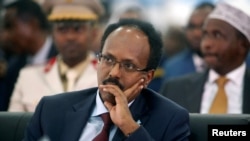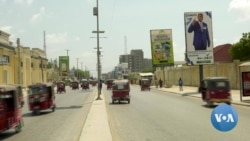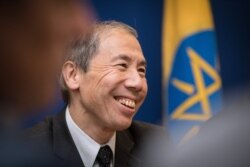There are more than 10 candidates in Somalia’s indirect presidential elections, in which four big clans and other minority tribes choose members of parliament that will decide on the country’s next head of state.
The opposition accuse President Mohamed Abdullahi Faramaajo of bypassing the electoral law by stacking the poll committee with his allies. The committee coordinates the parliamentary elections before the presidential poll.
Abdirahman Abdishakur, one of the key opposition figures, told VOA News that the president put members of the National Intelligence Agency, known as NISA, on the committee.
“Our concern is about how the committee was made of and we have some of the members, or the majority of the members, are from the NISA [The National Intelligence Agency], some of them are from civil service and some of them are known supporters of the current president, Faramaajo,” Abdishakur said.
The international community, including the United States, has raised concerns about the political standoff in a country that is already facing threats from armed group al-Shabab.
U.S. official offers warning
Ambassador Donald Yamamoto warned the opposition groups against subverting the election process.
“The opposition must reaffirm that there no parallel process, there is no delay, there is no change to [the] September 17 consensus agreement," Yamamoto said. "The U.S. and all the donor communities and partners are concerned about the electoral impasse.”
The United States’ recent announcement that it will withdraw its 700 troops who help the Somali security agencies battle al-Shabab has further threatened Somalia’s already fragile stability.
Stronger leadership needed
Abdirashid Hashi, an analyst at the Heritage Institute for Policy Studies, says the Somali government needs to show stronger leadership.
“They are responsible for the security and well-being and political stability of the country, and they need to just sit with their colleagues. People they [are] arguing with are their predecessors — former presidents are [the] ones that are actually leading the opposition groups,” Hashi said.
Citizens like student Shafi Yusuf hope there will be a peaceful poll where the outcome will be accepted by all sides in the race.
He said we need free and fair elections in which results are accepted by all citizens, like previous transparent poll processes, with the winner supported by the whole political spectrum.
Somali Prime Minister Mohamed Hussein Roble pledged his administration will address all concerns raised about the elections, which are scheduled for February.







